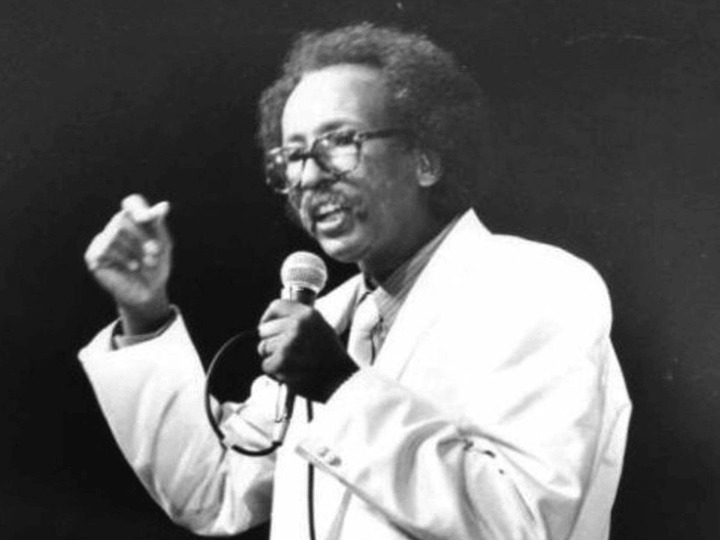
Mustafa had seven sisters and one brother named Al-Makkabool. Al-Makkabool’s life and death had a great influence on Mustafa because his brother was known in his homeland as a singer and poet and his dramatic death, when he was only 27, gave Mustafa a great desire to complete his brother’s career for him. Mustafa started primary education in Al-Hasa Hisa, close to his homeland. He then moved to Port Sudan, the capital of Red Sea state, where he got his secondary education. Mustafa first appeared as a singer in 1971 with the Training Teachers Institute when he quit working as a teacher in intermediate school (1973–75).
Mustafa spent four years studying at the Higher Institute for Music and Drama in Khartoum and graduated in the late 1970s. He is considered the pioneer of a new style of Sudanese singing because he used a style of poetry labelled by many critics as sophisticated and complicated, and one categorized as “political singing”.
After this, Mustafa chose to collaborate with younger poets. These were not song writers in particular, and their poetry was classified as symbolic. The style of poetry concerned itself with freedom and the struggle of the Sudanese people against the dictatorship of the latter years of the Jaafar Muhammad al-Numayri regime from the late 1970s to the early 1980s. These new poets included Yahia Fadullah, Abu zar Al-gafari, Muhammad Elmahdi Abed Elwahab, Qasim Abu zid, Katab Hassan Ahmad, Salaah haj Seed. Later, in the late 1980s and 1990s, Mustafa collaborated with more poets, including Al-Sadiq Al-raddi, Muhammad Elhassan Salim Homid, Alkattiabi, Azahri Muhammad Ali, Atif Khiry, Abed Elrahim Abu Zakrra, Madani El-Nakhaly, and Muhammad Ali Shammu.
Mustafa was also known as a poet and composer. He immigrated to Russia in 1989 when he was afflicted by kidney failure, and underwent surgery there before travelling to Alexandria and Cairo in Egypt. Mustafa subsequently immigrated to Qatar where he spent the rest of his life and died after a long struggle with kidney failure on 16 January 1996. During his time in Qatar, Mustafa released many songs, most of which expressed the suffering and struggle of the Sudanese against the regime of Omar al-Bashir. Mustafa’s songs reflected his exile and the suffering of expatriates, which were mixed in with the struggle against his own physical pain. This sentiment was transmitted to students in universities and schools and many other people.
During his life, Mustafa released more than a hundred songs. Mustafa wife was Buthayna Nassar and they had two sons, Saamir and Sid Ahmad, who now live in Canada.
Source: wikipedia.org

